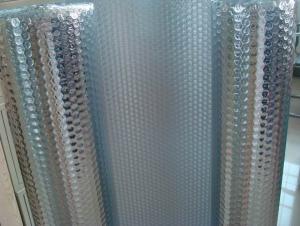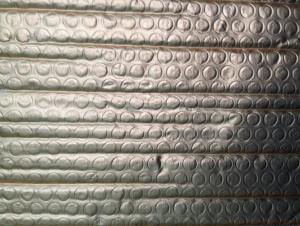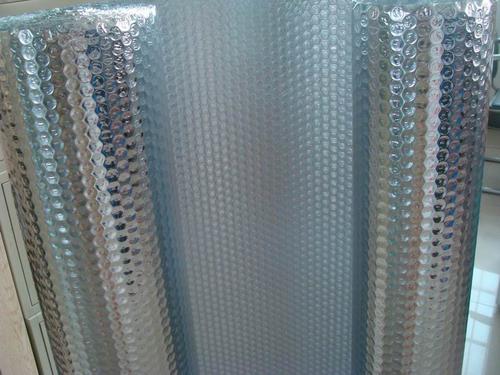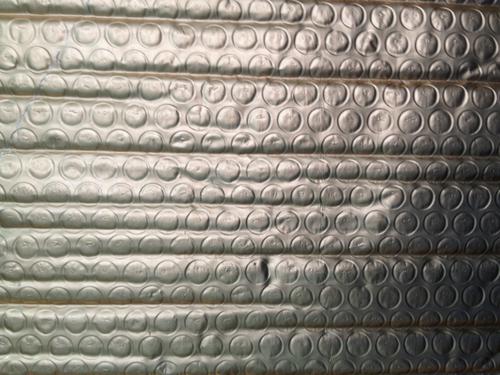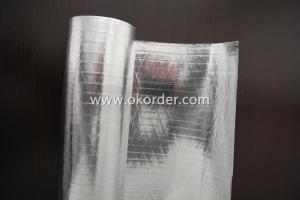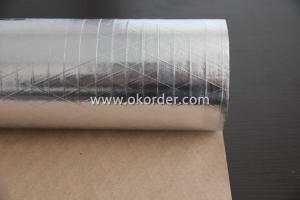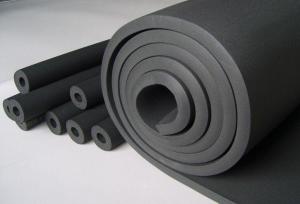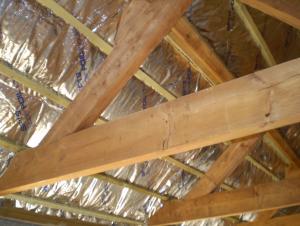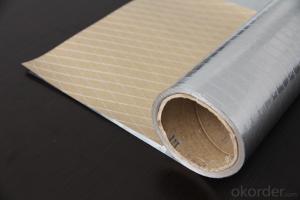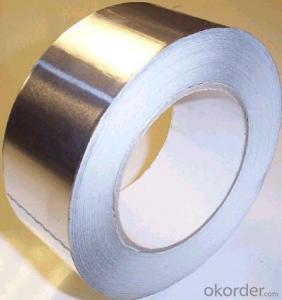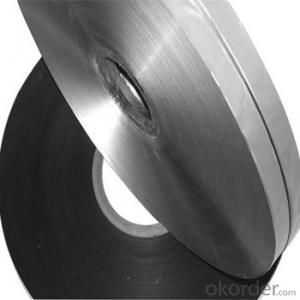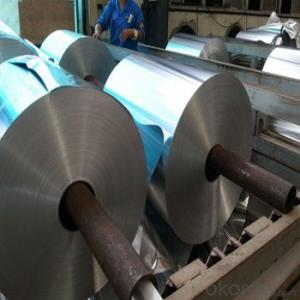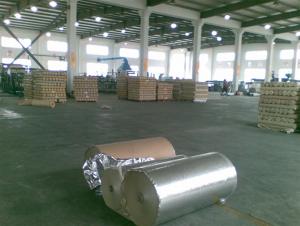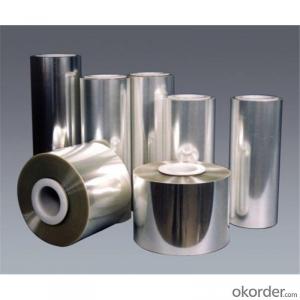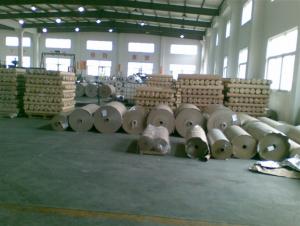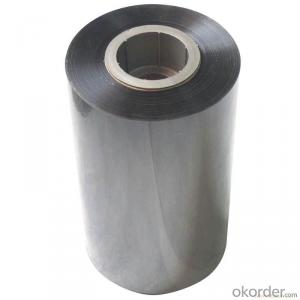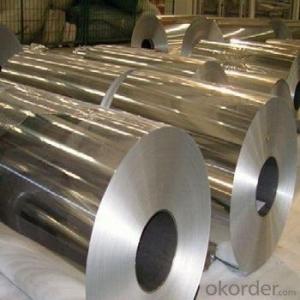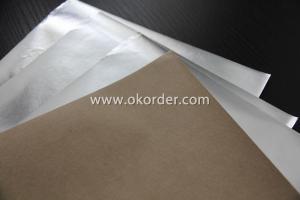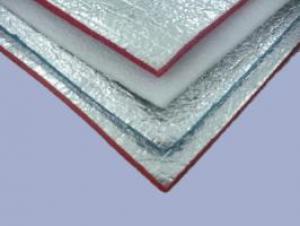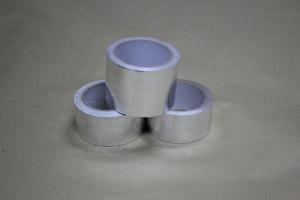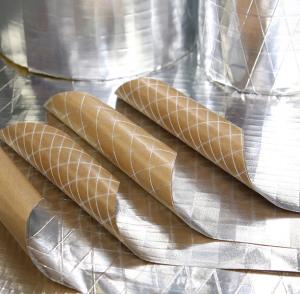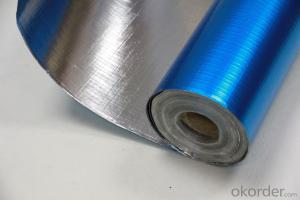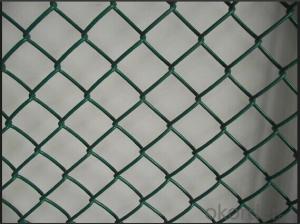Aluminum Foil Facing with LDPE for Heat Seal
- Loading Port:
- China Main Port
- Payment Terms:
- TT OR LC
- Min Order Qty:
- -
- Supply Capability:
- -
OKorder Service Pledge
Quality Product, Order Online Tracking, Timely Delivery
OKorder Financial Service
Credit Rating, Credit Services, Credit Purchasing
You Might Also Like
| structure | Normal laminated thickness | Width | Length | Color | ID | OD | Packin |
| AL+PET | 7umAlu+15umPet+3umGlue | 6mm-1000mm as your required | 500m-7000m | Silver blue bronze black others | 2"or3" | 250mm-600mm | polybag caron pallet
|
| 9umAlu+12umPet+3umGlue | |||||||
| AL+PET+AL | 6umAlu+15umPet+6umAlu+6umGlue | ||||||
| PET+AL+PET | 15umPet+7umAlu+15umPet | ||||||
| AL+PET+EAA | 7umAL+15umPET+25umEAA+6umglue | ||||||
| AL+PET+AL+EAA | 7umAlu+15umPET+7umAlu+25umEAA+9umglue | ||||||
| PET+PET | 15umPet+15umPet +3umGlue | ||||||
| Polyester Tape | 15um,18um |
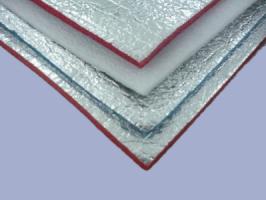
- Q: What are some suggestions to ensure plastic containers are used in a more hygienic and long-lasting manner?
- <p>To use plastic containers more hygienically and durably, follow these tips: 1) Always wash containers with warm soapy water and rinse thoroughly before and after each use. 2) Avoid putting hot foods or liquids directly into plastic containers to prevent warping and potential chemical leaching. 3) Do not use scratched or damaged containers as they can harbor bacteria and are more likely to break. 4) Store containers in a dry, cool place away from direct sunlight to prevent degradation. 5) Regularly inspect containers for signs of wear and replace them when necessary. 6) Use containers within their recommended temperature range to maintain their integrity and safety.</p>
- Q: This question asks for methods to prevent metal shavings from contaminating food when using aluminum foil.
- <p>To avoid getting metal shavings into your food when using aluminum foil facing, always handle the foil carefully to minimize tearing or scratching. Use a sharp knife or scissors to cut the foil, ensuring clean edges. Avoid using foil that is damaged or has sharp edges. When placing food on the foil, ensure the foil is smooth and free of any loose particles. Do not use foil with a non-stick surface for direct contact with acidic, salty, or high-sodium foods as it can cause the foil to break down. Finally, consider using heavy-duty aluminum foil which is thicker and less likely to produce shavings.</p>
- Q: Is it safe and effective to use aluminum foil facing material for wrapping food when preparing for freezing?
- <p>Yes, you can use aluminum foil facing for wrapping food for freezing. Aluminum foil is a good conductor of heat and provides a barrier that helps prevent freezer burn. It is also non-toxic and does not impart any taste to the food. Ensure the foil is tightly wrapped around the food to maintain its freshness and protect it from air exposure. However, it's important to note that aluminum foil is not microwave-safe, so if you plan to reheat the food, you should transfer it to a microwave-safe container before heating.</p>
- Q: What are the precautions to be aware of when using aluminum foil in the kitchen?
- <p>When using aluminum foil in the kitchen, it's important to avoid direct contact with acidic or alkaline foods as it may react and contaminate the food. Do not use it in broilers or ovens above 450掳F (232掳C), as it can melt and release harmful fumes. Avoid wrapping food in aluminum foil for extended periods, especially at high temperatures, as it may lead to the foil breaking down and leaching aluminum into the food. Always check for any tears or punctures in the foil to prevent food from coming into contact with the cooking surface directly.</p>
- Q: This question is incomplete, but it seems to be asking about special cleaning methods required for a specific situation or item.
- <p>Special cleaning methods can vary greatly depending on the context. For instance, cleaning electronic devices requires anti-static wipes, while cleaning antiques may need gentle, non-abrasive cleaners. In the case of medical equipment, sterilization is crucial. For specific items like carpets, steam cleaning might be necessary. Always refer to manufacturer's instructions or professional guidelines for the best cleaning practices.</p>
- Q: Is it possible to recycle aluminum foil with a facing layer in my country?
- <p>Yes, aluminum foil with a facing layer can often be recycled, but the process may vary by country. In many countries, aluminum foil is recyclable, including the type with a plastic or paper facing. However, it's important to check with your local recycling program, as some facilities may not accept it due to the difficulty in separating the layers. If your local program doesn't accept it, you might need to find a specialized recycling center that can handle this type of material.</p>
- Q: The user is asking if they can use paper plates and plastic utensils as an alternative to aluminum foil for their next meal.
- <p>Yes, you can use paper plates and plastic utensils instead of aluminum foil for your next meal. Paper plates are a great alternative for serving food and can be easily disposed of after use. Plastic utensils are also a convenient option, especially for outdoor meals or when you want to avoid washing dishes. However, it's important to consider the environmental impact of using disposable items. If you're concerned about sustainability, consider reusable options or biodegradable alternatives to minimize waste.</p>
- Q: This question asks about potential health or safety risks associated with the use of non-stick coatings on food covers or containers.
- <p>Non-stick coatings on food covers or containers are generally safe when used as directed. However, there are some concerns. High heat can cause these coatings to release potentially harmful fumes or chemicals, such as perfluorooctanoic acid (PFOA), which has been linked to health issues. It's important to avoid overheating non-stick items and to not use them in the oven or broiler. Always follow the manufacturer's guidelines for safe use and cleaning. If the coating is scratched or peeling, it's best to replace the item to prevent ingestion of the coating particles.</p>
- Q: What are the most suitable materials for covering food to ensure safety and freshness?
- <p>The best materials for food covers include food-grade silicone, beeswax wraps, and BPA-free plastic. Food-grade silicone is durable, heat-resistant, and can be reused. Beeswax wraps are eco-friendly, reusable, and can be used in the fridge or freezer. BPA-free plastic wraps are commonly used and are good for single use, but ensure they are microwave-safe if you plan to reheat food. Always check for food safety certifications and avoid materials that can leach harmful chemicals into your food.</p>
- Q: The user is asking if aluminum foil can be used as a replacement for tin foil in baking and grilling applications.
- <p>Yes, you can use aluminum foil as a substitute for tin foil in baking pans or grilling pans. Both aluminum and tin foil are commonly used for similar purposes, such as lining pans, wrapping food, and preventing food from sticking. Aluminum foil is more widely available and less expensive than tin foil. It conducts heat well and is non-toxic, making it a suitable alternative for most baking and grilling needs. However, note that aluminum may react with acidic foods, so it's best to avoid using it in such cases or to use a heavier gauge to minimize contact with the food.</p>
Send your message to us
Aluminum Foil Facing with LDPE for Heat Seal
- Loading Port:
- China Main Port
- Payment Terms:
- TT OR LC
- Min Order Qty:
- -
- Supply Capability:
- -
OKorder Service Pledge
Quality Product, Order Online Tracking, Timely Delivery
OKorder Financial Service
Credit Rating, Credit Services, Credit Purchasing
Similar products
Hot products
Hot Searches
Related keywords
